Diana Pequeno
Diana Pequeno, Brazilian singer and songwriter, was born in Salvador / BA on January 25, 1958. Her surname is actually Pequeno. She lived in Salvador, in the Nazareth neighborhood (downtown Salvador) and studied at the famous College Application - a major benchmarks in terms of education in the years 50-70, won by the New Baianos song. That, left to the Federal University of Bahia (UFBa), where she studied Electrical Engineering. In the late 1970s, while still an Electrical Engineering student, she rose to prominence as a singer on college stages. She spent that time devoting herself to music, seeking a characteristically Brazilian repertoire, mixed with romantic ballads, besides the medieval, oriental and African influences. She also set poems by Mario Quintana and Cecilia Meireles to music. At one point, her father's friend Bila, though he did not professionally deal with music, asked if he could find three good singers to make tests at RCA-Victor. At this point, Diana Pequeno was known in Bahia university and media circles, so her father decided to let her audition, half in disbelief, along with two other singers. Diana was the only choice for RCA-Victor - one of the labels who designed more singers in the 70s - and, at age 19, she entered the studio to record her first album. She moved to São Paulo in 1978, when she was launched as a singer. Her first album, "Diana Pequeno", which featured creative direction of Osmar Zan, artistic director and studio Dércio Marques and with the special participation of Osvaldinho the accordion, Gereba, Bendegó Group, Dorothy Marques, making it a great success, well received by critics. 1 Among other compositions, she recorded the "Cuitelinho" folkloric theme, adapted by Paul Vanzolini, "Lullaby" from Elomar, "Los Caminos" Pablo Milanez, "Grasses" by Marques Dércio Claudio and Murilo and a version of her own to the classic ballad "Blowin' in the Wind", by the American singer-songwriter Bob Dylan, with Dércio Marques accompanying her on the guitar, and who worked as coordinator and artistic director of the studio on her next album and whom the singer married, divorcing in 1982. In 1979 she qualified for the finals of the Music Festival TV Tupi with the song "Torch of Fire" John Ba Vital and France, with the special participation of the singer, songwriter and instrumentalist Marlui Miranda on vocals with the band. That year, she released the album "Eternal Like Sand", which besides the aforementioned song, featured tracks like "This Will Work in Bahia Mar," by Hilton Acioli; "White Field" and "Cantiga de Amigo" by Elomar; "Chameleon", adapted from Pernambuco folklore; a beautiful version of "Rio Largo de Profundis", written by Zeca Afonso, Portuguese composer, symbol of the Carnation Revolution, besides the title track, José Maria Giroldo. In 1980, "Rio Largo de Profundis" was featured in MPB-80 festival of TV Globo, with the song "Diversity" Chico Maranhão. Released in 1981, by RCA LP "Sign of Love", among others interpreting the compositions "Pantanal Train" by Geraldo Roca and Paulo Simões, who would become the unofficial anthem of Mato Grosso do Sul, "Search-foot" John Vidal Bá and France, "Wandering" Paulinho Morais, "Regina" folk theme with an adaptation of her own, "the Flowers Garden this" Ricardo Villas and "Laura" in partnership with Luis Llach. The following year, she released the album "My Feeling", with the title song of melon and Vladimir Diniz, and "Indian Love" by Beto Guedes and Ronaldo Bastos, "Landscape" (Song of the young girl) and "Mass land Without Evil ", with lyrics by Peter and Peter Casaldáliga earth and melody of her own. When she could have become one of the greatest singers of Brazil, Diana made the decision to move away from the mainstream. Also launched in 1984, the LP "The Mystery of the Stars", characterized by a markedly pop sound, certainly more dated her work, especially the song "I'll be Your Well", a version of "You've Got a Friend" by Carole King. Her last appearance was for the general public with a theme of the novel, something she had only done once in Bandeirantes, with "Indian Love", which was used in the soundtrack of the novel Toffee Apple: "Let there be heart", which entered the track overall plot "De Quina Pra Lua." Far from being a song in the style Diana Pequeno, the LP was only released in the novel. She took advantage of the end of her contract with RCA-Victor and did not renew it, returning instead to her engineering course. She graduated, and resumed life at age 27. In 1989, with help from sister Eliana Pequeno, who has always been her private producer, Diana Pequeno launched an independent record called "Mysteries" (erroneously called Acquarius by some - the confusion goes by the name that appears on the LP label actually "Acquarius" was the producer of Eliana Pequeno). It is an intimate album, pop mezzo, mezzo regionalist, being the rarest of Diana Pequeno, mainly because its sales have been made by post. The cover is fairly simple, with her profile photo in black and white. For this LP she wrote a version of a classic folk / American pop of the 70s: "All I Want" version for "All I Want", the opening track of the album of confessional singer-songwriter Joni Mitchell, "Blue, "released in 1971. The LP had, among others, the songs "Staring" by Guarabyra and Zé Rodrix; "The islands," by Joyce; "Woman Lacemaker" by Zé and Zé Martins North; "Thousand Melodies" by Guilherme Rondon and Paulo Simões and "All in the Eyes" and "Be Happy Is Better Than Nothing", which she authored. After an artistic hiatus of more than a decade, in 2001 she launched her seventh album, "Songs", by Seal Radio Mec, with classics of Brazilian popular songs by Carlos Gomes, Villa-Lobos, Gonzaga Chiquinha and Guerra Peixe, and folk and compositions of her own, where the singer showed an obvious maturing as a songwriter. In 2002, she performed at Sala Funarte in Rio de Janeiro the following songs, "White Moon," by Catullus Ceará and the Passion "Canoeiro" by Dorival Caymmi. In 2003, she appeared on the show "Life is a show," presented by Miele in TVE, when she spoke of her life and career. The last known public appearance Diana Pequeno made was in her homeland, in 2005, more precisely for the project "Pelourinho Day and Night". Since then, she has made appearances in the media. Only people like percussionist Papete, Zeca (moderator of the community on Orkut) and Ze Roberto (President of the fan club), still have kept some contact with her. Some say Diana ended up as an engineering professional.
Releases
-
 Diana Pequeno / Diana Pequeno
Diana Pequeno / Diana Pequeno
-
 Cantigas
Cantigas
-
 Diana Pequeno
Diana Pequeno
-
 Mistérios
Mistérios
-
 O Mistério Das Estrelas
O Mistério Das Estrelas
-
![]() Serei Teu Bem (You've Got A Friend)
Serei Teu Bem (You've Got A Friend)
-
 Mensageiro D'Alegria / Farra
Mensageiro D'Alegria / Farra
-
 Super 3 Disco de Ouro Talento - Produto - Qualidade
Super 3 Disco de Ouro Talento - Produto - Qualidade
-
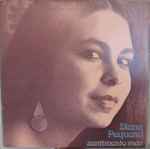 Sentimento Meu
Sentimento Meu
-
 Sinal De Amor
Sinal De Amor
-
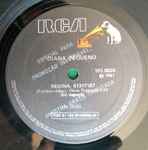 Regina
Regina
-
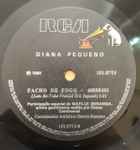 Engenho De Flores / Facho de Fogo
Engenho De Flores / Facho de Fogo
-
 Diverdade
Diverdade
-
 Engenho De Flores / Facho De Fogo / Diverdade / Esse Mar Vai Dar Na Bahia
Engenho De Flores / Facho De Fogo / Diverdade / Esse Mar Vai Dar Na Bahia
-
 Canção De Fogo / Los Caminos / Blowin' In The Wind / Milonga De Andar Lejos
Canção De Fogo / Los Caminos / Blowin' In The Wind / Milonga De Andar Lejos
-
 Blowin' In The Wind
Blowin' In The Wind
-
 Eterno Como Areia
Eterno Como Areia
-
 Diana Pequeno
Diana Pequeno
-
![]() Lucas & Matheus
Lucas & Matheus
-
 Jerônimo (Trilha Sonora Novela SBT)
Jerônimo (Trilha Sonora Novela SBT)
-
 Jardim Da Fantasia
Jardim Da Fantasia
-
 Sou Filho Dêsse Chão
Sou Filho Dêsse Chão
-
 Pelos Caminhos Do Rock
Pelos Caminhos Do Rock
-
 We Are The Children Of The Sun
We Are The Children Of The Sun
-
 Mulheres Do Brasil - Novelas
Mulheres Do Brasil - Novelas
-
 Elas 3 e 4
Elas 3 e 4
-
 Focus On: Beats Of Brazil
Focus On: Beats Of Brazil
-
 Focus On: Beats Of Brazil
Focus On: Beats Of Brazil
-
 Simplesmente Divas
Simplesmente Divas
-
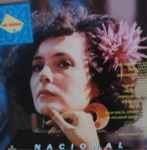 De Quina Pra Lua (Nacional)
De Quina Pra Lua (Nacional)
-
 Jogo Do Amor (Trilha Sonora Original Da Novela)
Jogo Do Amor (Trilha Sonora Original Da Novela)
-
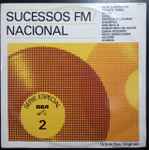 Sucessos FM / Nacional Série Especial 2
Sucessos FM / Nacional Série Especial 2
-
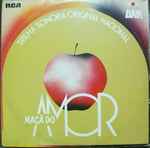 Trilha Sonora Original Nacional Maçã Do Amor
Trilha Sonora Original Nacional Maçã Do Amor
-
 Obrigado Doutor (Trilha Sonora Original)
Obrigado Doutor (Trilha Sonora Original)
-
 Som Brasil
Som Brasil
-
 To A Very Special Friend From Rca Brazil - Brazil '81
To A Very Special Friend From Rca Brazil - Brazil '81
-
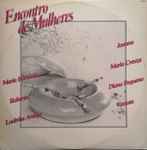 Encontro De Mulheres
Encontro De Mulheres
-
 Fantásticos Vol.14
Fantásticos Vol.14
-
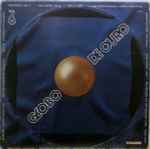 Globo De Ouro Vol. 6
Globo De Ouro Vol. 6
-
 MPB 80 - Vol. 1
MPB 80 - Vol. 1
-
 Brazil' 80
Brazil' 80
-
 Fantásticos Vol.12
Fantásticos Vol.12
-
 Primeira Audição Vol. 11
Primeira Audição Vol. 11
-
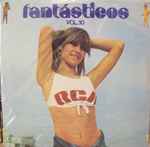 Fantasticos Vol.10
Fantasticos Vol.10
-
 Fantásticos Da Música Popular Brasileira
Fantásticos Da Música Popular Brasileira
-
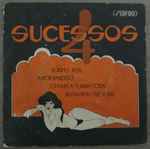 4 Sucessos
4 Sucessos
 Diana Pequeno / Diana Pequeno
Diana Pequeno / Diana Pequeno
 Cantigas
Cantigas
 Diana Pequeno
Diana Pequeno
 Mistérios
Mistérios
 O Mistério Das Estrelas
O Mistério Das Estrelas
 Mensageiro D'Alegria / Farra
Mensageiro D'Alegria / Farra
 Super 3 Disco de Ouro Talento - Produto - Qualidade
Super 3 Disco de Ouro Talento - Produto - Qualidade
 Sentimento Meu
Sentimento Meu
 Sinal De Amor
Sinal De Amor
 Regina
Regina
 Engenho De Flores / Facho de Fogo
Engenho De Flores / Facho de Fogo
 Diverdade
Diverdade
 Engenho De Flores / Facho De Fogo / Diverdade / Esse Mar Vai Dar Na Bahia
Engenho De Flores / Facho De Fogo / Diverdade / Esse Mar Vai Dar Na Bahia
 Canção De Fogo / Los Caminos / Blowin' In The Wind / Milonga De Andar Lejos
Canção De Fogo / Los Caminos / Blowin' In The Wind / Milonga De Andar Lejos
 Blowin' In The Wind
Blowin' In The Wind
 Eterno Como Areia
Eterno Como Areia
 Diana Pequeno
Diana Pequeno
 Jerônimo (Trilha Sonora Novela SBT)
Jerônimo (Trilha Sonora Novela SBT)
 Jardim Da Fantasia
Jardim Da Fantasia
 Sou Filho Dêsse Chão
Sou Filho Dêsse Chão
 Pelos Caminhos Do Rock
Pelos Caminhos Do Rock
 We Are The Children Of The Sun
We Are The Children Of The Sun
 Mulheres Do Brasil - Novelas
Mulheres Do Brasil - Novelas
 Elas 3 e 4
Elas 3 e 4
 Focus On: Beats Of Brazil
Focus On: Beats Of Brazil
 Focus On: Beats Of Brazil
Focus On: Beats Of Brazil
 Simplesmente Divas
Simplesmente Divas
 De Quina Pra Lua (Nacional)
De Quina Pra Lua (Nacional)
 Jogo Do Amor (Trilha Sonora Original Da Novela)
Jogo Do Amor (Trilha Sonora Original Da Novela)
 Sucessos FM / Nacional Série Especial 2
Sucessos FM / Nacional Série Especial 2
 Trilha Sonora Original Nacional Maçã Do Amor
Trilha Sonora Original Nacional Maçã Do Amor
 Obrigado Doutor (Trilha Sonora Original)
Obrigado Doutor (Trilha Sonora Original)
 Som Brasil
Som Brasil
 To A Very Special Friend From Rca Brazil - Brazil '81
To A Very Special Friend From Rca Brazil - Brazil '81
 Encontro De Mulheres
Encontro De Mulheres
 Fantásticos Vol.14
Fantásticos Vol.14
 Globo De Ouro Vol. 6
Globo De Ouro Vol. 6
 MPB 80 - Vol. 1
MPB 80 - Vol. 1
 Brazil' 80
Brazil' 80
 Fantásticos Vol.12
Fantásticos Vol.12
 Primeira Audição Vol. 11
Primeira Audição Vol. 11
 Fantasticos Vol.10
Fantasticos Vol.10
 Fantásticos Da Música Popular Brasileira
Fantásticos Da Música Popular Brasileira
 4 Sucessos
4 Sucessos